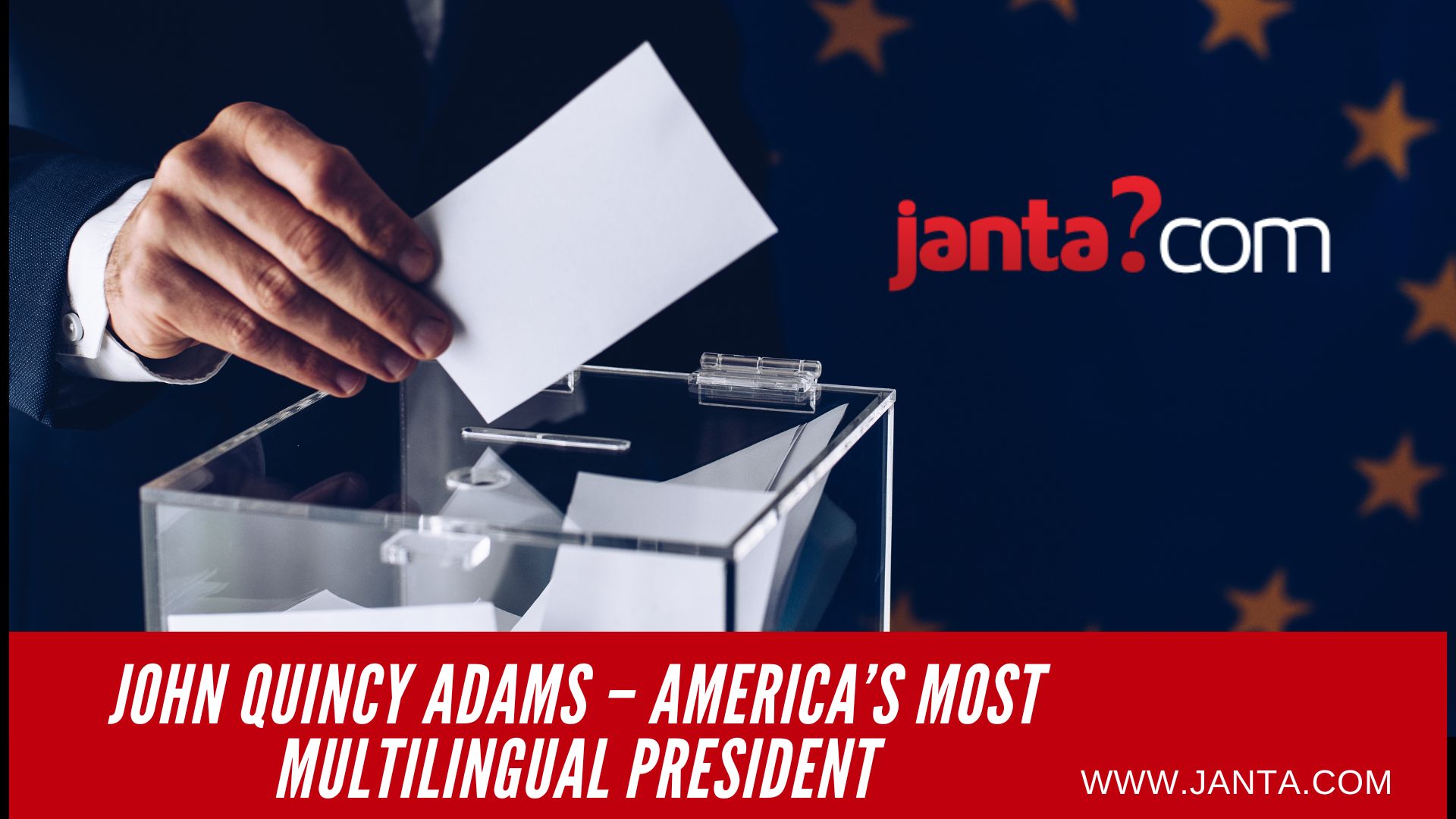Explore how John Quincy Adams, America’s sixth President, distinguished himself as the nation’s most multilingual leader. Discover how his profound language skills not only shaped his diplomatic prowess but also influenced international relations during his tenure.
Let’s dive into his linguistic journey and uncover the lasting impact of multilingualism on Adams’ career and legacy below.
Early Life and Education
John Quincy Adams was born on July 11, 1767, in Braintree, Massachusetts. He was the eldest son of John Adams, the second President and one of the Founding Fathers of the United States, and Abigail Adams, a prominent advocate for women’s rights and education.
Growing up in a politically active family, Adams was exposed to a rich intellectual environment from an early age. His father, recognizing the importance of a broad education, ensured that young John Quincy received rigorous academic training.
Adams’ early education was marked by a strong emphasis on classical studies, including Latin and Greek. His formal education began at a local school in Braintree, followed by private tutoring from his father and other esteemed scholars.
This solid foundation in classical languages was further enhanced by his early exposure to French, which he began learning at the age of ten. The Adams family’s frequent travels to Europe, due to John Adams’ diplomatic missions, provided John Quincy with the unique opportunity to experience different cultures and languages.
FUN FACT: John Quincy Adams was the first American president whose father also served as a President, John Adams. The second father-son duo to become Presidents was the Bushes (George H.W. Bush (1989-1993) and George W. Bush (2001-2009)).
Languages Spoken
John Quincy Adams was proficient in several languages, each of which played a significant role in his career and personal life. The primary languages he spoke included:
Latin.
Adams was well-versed in Latin. His proficiency in Latin allowed him to engage deeply with ancient texts and historical documents.
Greek.
Alongside Latin, Greek was a fundamental part of Adams’ scholarly pursuits. His knowledge of Greek enabled him to appreciate classical literature and philosophy.
French.
Adams’ fluency in French was perhaps his most practical linguistic skill. French was the international language of diplomacy during his time, and his command of it was crucial during his diplomatic missions in Europe.
Dutch.
Adams acquired a good working knowledge of Dutch during his tenure as the U.S. Minister to the Netherlands. This skill proved invaluable in navigating the political landscape of the Dutch Republic.
In addition to these languages, Adams also had some knowledge of German, Spanish, Russian, and Italian, although his proficiency in these languages was not as advanced as in Latin, Greek, French, and Dutch.
Role of Multilingualism in His Career
John Quincy Adams’ linguistic skills greatly benefited his legal and diplomatic career. As a young lawyer, his ability to read legal texts in Latin and French was an asset. His multilingual abilities were even more impactful during his political and diplomatic engagements.
In the Continental Congress, Adams’ proficiency in multiple languages allowed him to access a wide range of international documents and correspondences, which enhanced his understanding of global affairs.
His language skills were indispensable during his diplomatic missions in Europe. As U.S. Minister to the Netherlands, Russia, Prussia, and later as the U.S. Ambassador to the United Kingdom, Adams’ ability to communicate directly with foreign leaders and officials in their native languages facilitated smoother and more effective negotiations.
Comparison with Other Multilingual Presidents
Several other U.S. presidents have been known for their linguistic abilities, including Thomas Jefferson, James Madison, and Herbert Hoover. Thomas Jefferson spoke French, Italian, and Spanish in addition to Latin and Greek.
James Madison also had a strong command of Latin and Greek. Herbert Hoover spoke some Mandarin Chinese, a unique linguistic skill among U.S. presidents.
While these presidents were indeed multilingual, John Quincy Adams stands out due to the breadth and depth of his language skills. His fluency in four major languages (Latin, Greek, French, and Dutch) and his working knowledge of several others make him the most linguistically versatile president in American history.
Influence on Diplomacy
His fluency in French was pivotal in negotiating the Treaty of Ghent in 1814, which ended the War of 1812. His ability to speak Dutch strengthened relations during his tenure in the Netherlands.
Personal Reflections and Correspondence
John Quincy Adams’ letters and diaries provide a wealth of insight into his thoughts on language and its importance in both personal and professional contexts. In his correspondence, he often reflected on the value of learning multiple languages, not only for practical purposes but also for personal enrichment and intellectual growth.
One notable anecdote from his diary describes how he continued to study and practice languages throughout his life, even amidst his busy political career. He often mentioned the satisfaction he derived from reading classical texts in their original languages and engaging in conversations with foreign diplomats in their native tongues.
Legacy and Recognition
John Quincy Adams’ linguistic skills are remembered as a testament to his intellectual prowess and dedication to public service. His contributions to American education and language studies are significant, as he advocated for the inclusion of classical languages and modern foreign languages in the curriculum.
Adams’ legacy as a multilingual president is honored through various historical and educational institutions. His proficiency in languages and his diplomatic achievements continue to inspire scholars and students of international relations and linguistics. Follow Janta for more interesting content on American politics.
